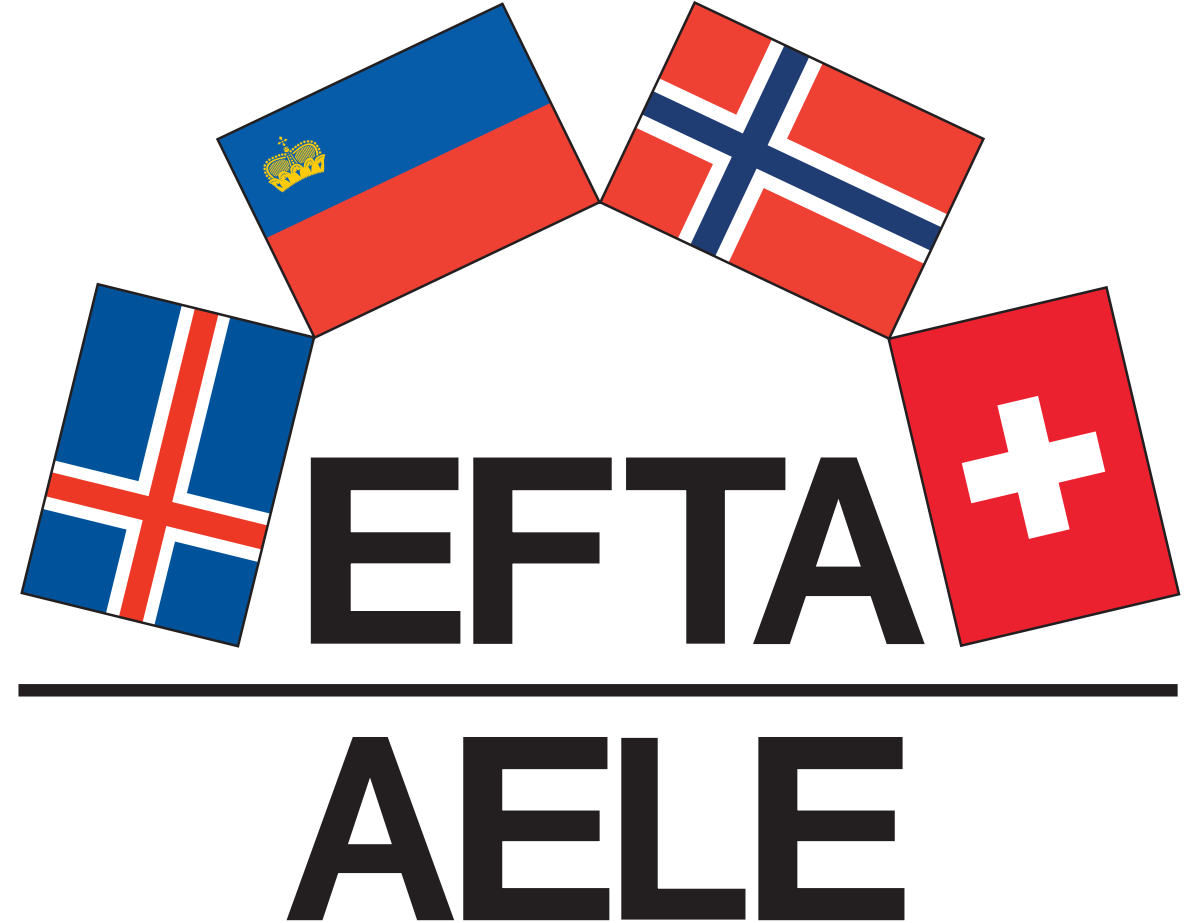Acronym: EFTA
Established: 1960
Address: Rue de Varembé, 9-11, 1211 Geneva 20, Switzerland
Website: https://www.efta.int/
Stakeholder group: International and regional organisations
EFTA is an intergovernmental organisation composed of four member states: Iceland, Liechtenstein, Norway, and Switzerland. Established in 1960 by the EFTA Convention, EFTA promotes free trade and economic integration between its members. Since its foundation, relations with the European Union (EU) have been at the heart of EFTA’s activities. In 1992, three EFTA states (Iceland, Liechtenstein, and Norway) signed the Agreement on the European Economic Area (EEA) with the EU, extending the EU’s Internal market to the three EEA EFTA states. Since the early 1990s, EFTA has been actively engaged in trade relations with non-EU countries both inside and outside Europe.
Digital activities
EFTA’s activities in the context of digital issues pertain to electronic communication such as the exchange of information via telecommunications and the internet, audiovisual services, and information society, including the free movement of information society services as well as data protection.
E-commerce and trade
EFTA’s Working Group on Electronic Communication, Audiovisual Services, and Information Society (WG ECASIS) deals with legal provisions pertaining to the EU’s digital strategy: Fit for the Digital Age. As per the EEA Agreement, the EFTA states (excluding Switzerland) participate in the EU’s internal market and as such must apply EU rules on electronic communication, audiovisual services, and information society. Among other things, these rules include acts on radio spectrum management, roaming, privacy protection in electronic networks, net neutrality, and the deployment of very-high-capacity networks. Initiatives regarding information society tackle legal frameworks on the free movement of information society services and apply to a wide range of economic activities taking place online. These include rules on e-commerce, cross-border data flows, the reuse of public sector information, and cybersecurity, as well as electronic identification and signatures.
In its trade relations with partners outside the EU, EFTA facilitates and provides basic rules for trade enabled by electronic means. In 2021, EFTA finalised its internal work on a new e-commerce model chapter, which it now employs in the context of negotiations on free trade agreements (FTAs) across the globe. The chapter includes provisions on paperless trade administration, open internet access, online consumer trust, electronic payments and invoicing, and cross-border data transfers, among others. EFTA is further negotiating a Digital Economy Agreement with Singapore.
Future of work
EFTA is also tackling the implications of digitalisation for the future of work. A resolution and report titled Digitalisation and its Impact on Jobs and Skills published by the EEA Consultative Committee highlights the importance of investments in information and communications technology (ICT) infrastructure and new learning methods, including apprenticeships and workplace training. Moreover, they underline the need to examine whether and to what extent workers’ private lives require additional protection in an era of ubiquitous digital mobile communication.
More recently, the EEA Consultative Committee adopted a resolution and report on the challenges and opportunities of greater use of AI in working life, in which it underlines the importance of addressing issues raised by the increased use of artificial intelligence (AI) in work-life in a systematic and comprehensive manner in the EEA, while following the principles of transparency and human monitoring.
Data governance and liability of intermediaries
In the context of the EEA Agreement, WG ECASIS works with the EU on policies for creating a single market for data, as well as the conditions for use and access to data for businesses and governments within the EEA. The Working Group also engages with the EU to develop a common regulatory framework for AI. In the area of online intermediaries, the EEA EFTA states have issued common position papers (EEA EFTA Comments) on the proposed European Media Freedom Act and the new EU rules for internet platforms: the Digital Services Act and the Digital Markets Act. The EEA EFTA states advocate for additional safeguards regarding the use of recommender systems, consumer profiling, and micro-targeted advertising, in particular when directed at minors and vulnerable groups. WG ECASIS works to implement EU content rules affecting trade in the EU’s internal market, particularly with regard to the dissemination of terrorist content and child sexual abuse material online.
Privacy and data protection
EFTA’s Expert Group on Data Protection keeps track of EU initiatives in the domain of data protection, which has become particularly relevant in the fast-changing digital environment. The Expert Group contributes to the development of EU policies and legislation in the field of data protection by advising the European Commission, or by participating in the Commission’s committees, in accordance with the EEA Agreement. The EEA Agreement covers EU legislation such as the e-Privacy Directive and Regulation 611/2013 on notifications of data breaches and is therefore applicable to three EFTA states. The Expert Group is coordinating with the European Commission on new EU data adequacy decisions allowing the international transfer of personal data with counterparties located outside the EEA.
The EFTA trade statistics tool is an interactive tool that provides data on trade relations with EFTA’s partners over time and by type of merchandise. An interactive Free Trade Map illustrates EFTA’s preferential trade relations with partners worldwide. In August 2023, EFTA updated its FTA Monitor, originally published in June 2022, which provides fine-grained data on preference utilisation rates under EFTA’s existing FTAs, including the EFTA Convention. The FTA Monitor is updated annually. EFTA has also created a web tool containing visual presentations explaining how EU law becomes EEA law.
Future of meetings
In the context of the COVID-19 crisis, EFTA turned to virtual meetings, for instance in the case of the EEA Joint Committee, interaction with the EFTA Advisory Bodies, and FTA negotiations with partners across the globe. EFTA continues to leverage the benefits of virtual and hybrid meetings and corollary online platforms, striking a balance with physical meetings on a needs basis





Social media channels
Facebook @eftasecretariat
Instagram @eftasecretariat
LinkedIn @efta
X @EFTAsecretariat
YouTube @EFTAvideo